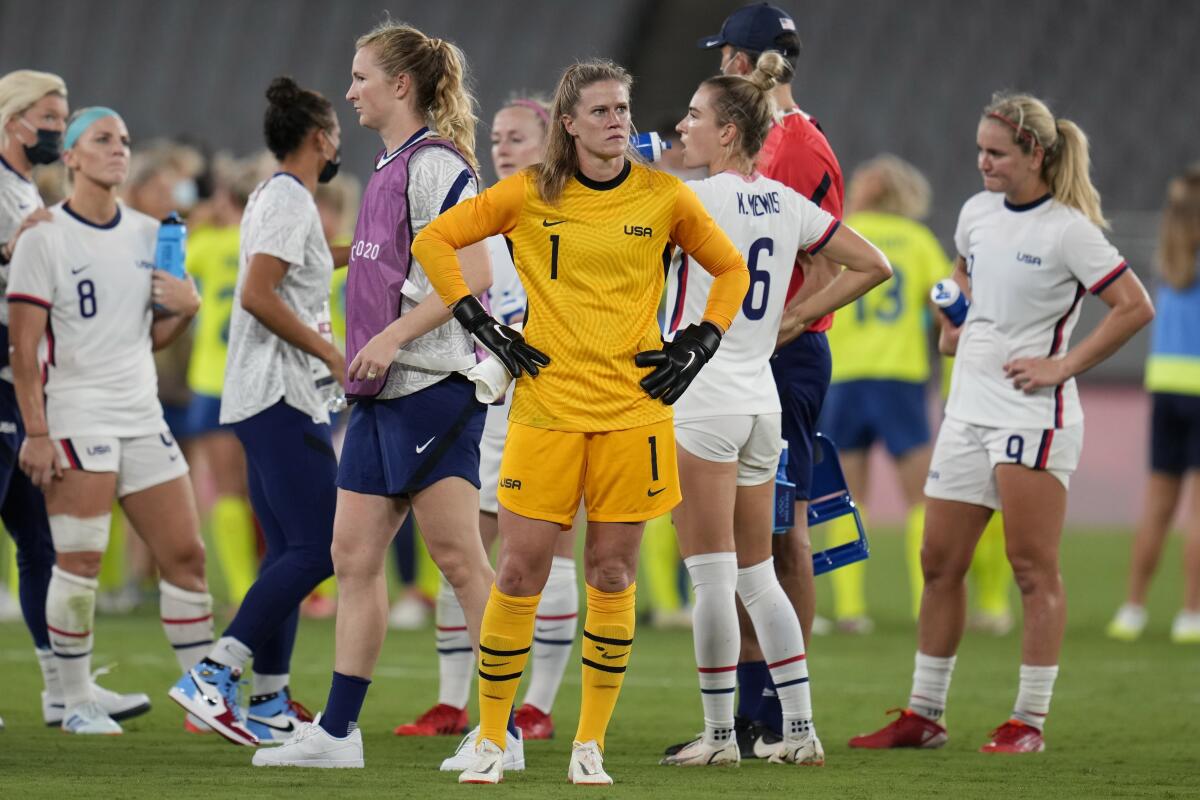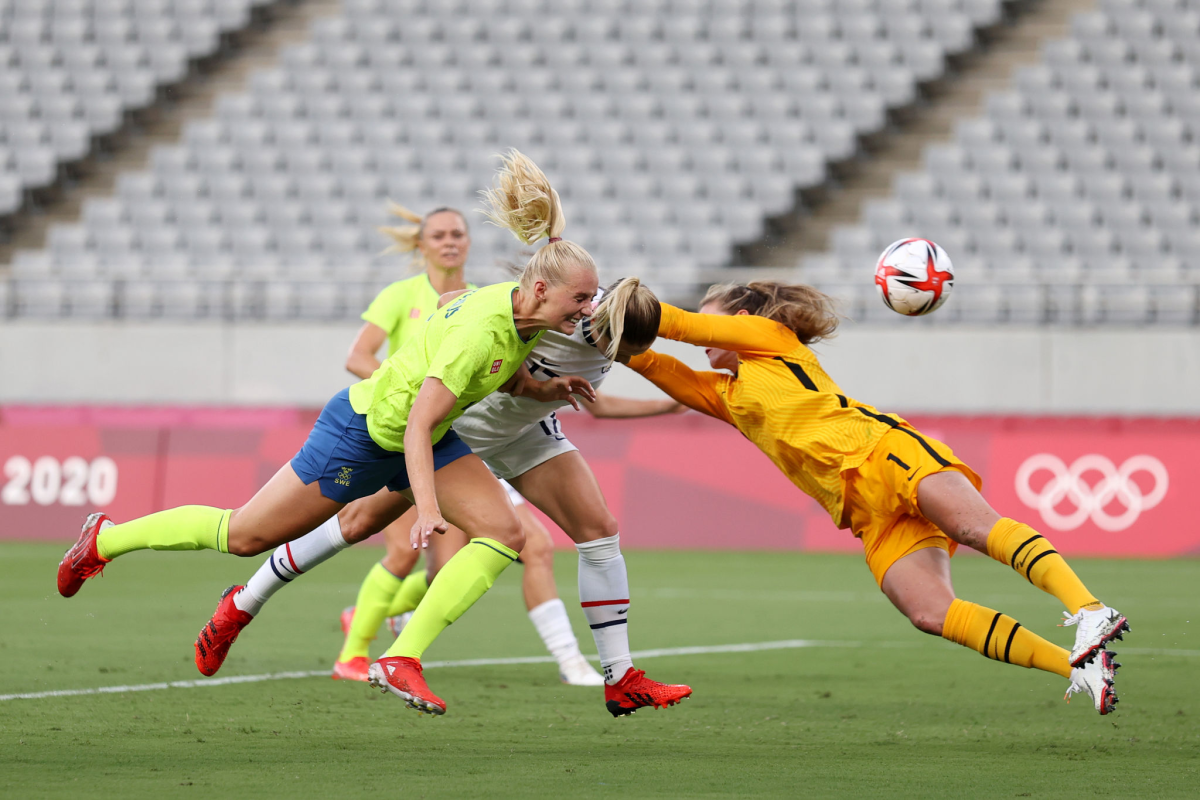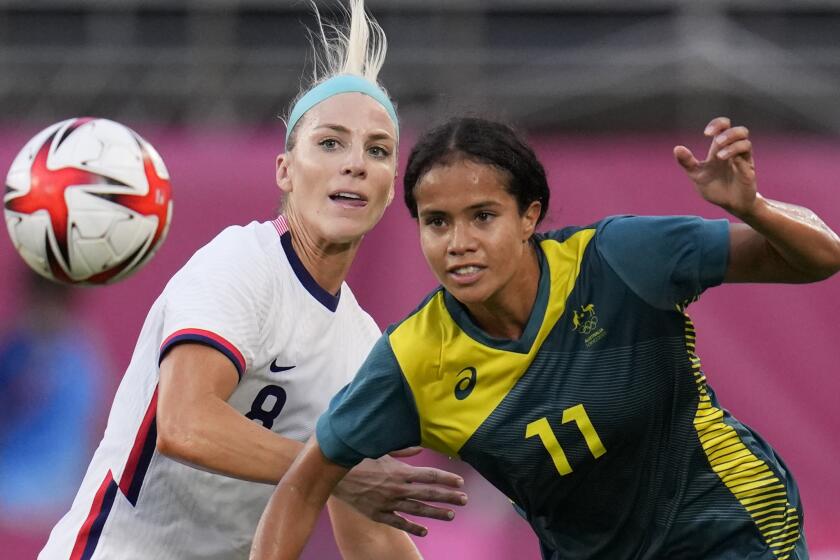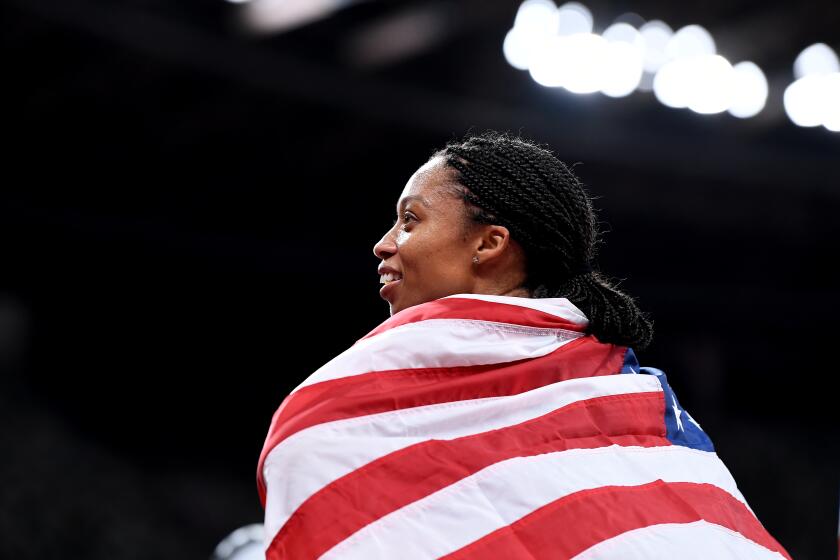Showdown vs. Netherlands could offer a new start for Alyssa Naeher and the USWNT

TOKYO — It’s not Alyssa Naeher‘s fault.
Whatever is bothering the U.S. women’s soccer team, which limps into the knockout round of the Tokyo Olympics on Friday following the worst group-stage performance in an international championship in U.S. history, none of it can be blamed on Naeher, the goalkeeper.
Sure, she gave up three goals in the opening loss to Sweden. But she also made six saves, the most she’s had in a game in more than 31 months.
Her teammates couldn’t manage six shots on goal.
She’s given up one goal in 198 minutes since then, and that one came after defender Abby Dahlkemper slipped and took herself out of the play, leaving Naeher to face two attackers alone.
The USWNT continues to play at a level below its soccer powerhouse reputation, settling for a scoreless draw against Australia in the Tokyo Olympics.
Which brings us to Friday and the Olympic quarterfinals, which is basically the stage where Naeher’s national team career got started.
Five years ago, after the Americans lost to Sweden in the quarterfinals of the Rio Games, a frustrated Hope Solo, the U.S. keeper for 11 years, called the winners “a bunch of cowards,” a comment that earned her a suspension from U.S. Soccer. She never played another game for the national team.
That cleared the way for Naeher, who had made four starts in three years as Solo’s understudy, to take over and the U.S. hasn’t looked back, winning a World Cup and coming to Tokyo riding a 44-game unbeaten streak. Now she’s tasked with guiding the U.S. through the deepest knockout stage in Olympic history, one in which all eight teams are ranked among the top 10 in the world by FIFA.
Four of the eight made the semifinals of the last World Cup, which ended with the U.S. beating the Netherlands. The Tokyo knockout stages begin with a rematch of that game.
“Alyssa, when her time came, she grabbed it and ran with it. I think Alyssa is fantastic,” said Briana Scurry, who ranks second to Solo in games, appearances and wins by a U.S. goalkeeper.

Our mentality and our goal doesn’t change. Regardless of anything else going on, our goal is to win.
— Alyssa Naeher
Naeher is catching up to both. The three goals she allowed to Sweden were more than she had given up combined in the previous 20 months, when 14 of her 16 starts ended in shutouts. Her clean sheet in the World Cup win over the Netherlands allowed her to join Scurry as the only Americans to post a shutout in a World Cup final.
But Solo and Scurry both have Olympic gold medals. And given the way the sloppy, punchless and passive Americans have played under coach Vlatko Andonovski in Tokyo, Naeher will need a big effort Friday against the Netherlands to have a chance at matching that.
The Dutch scored 21 times in their three group-stage games in Japan. Eight of those came from one player, Vivianne Miedema, setting an Olympic record. The U.S., meanwhile, was shut out twice in its three games and two of the scores it did get were gifts, own goals in a 6-0 win over New Zealand.
But everyone starts over again in the knockout stage.
“Our mentality and our goal doesn’t change,” Naeher said. “Regardless of anything else going on, our goal is to win. Every time we step on the field, whether it’s a friendly, whether it’s a world championship, whether it’s an 11 v. 11 intrasquad [game], we want to win.
“That’s what we prepare for, to put ourselves in the best position to try to get that done.”
Naeher said her time as a backup on the national team wasn’t wasted, but was an important part of her development.
“I got the opportunity to train with and learn behind a number of great goalkeepers,” she said. “Those years were invaluable to try to just continue to hone my craft and find out what kind of goalkeeper I wanted to be.”
Naeher also benefited from the two seasons she spent with Germany’s Turbine Potsdam, where she made 54 appearances over two seasons before coming home to join the fledgling NWSL, winning goalkeeper of the year honors in 2014, the same year she made her senior national team debut by shutting out Argentina.
She’s had 43 shutouts since then. Only Solo and Scurry have more. And like Scurry, who played five sports in high school, Naeher was a talented multisport athlete whose first love growing up in Connecticut was basketball and whose professional dream was to play in the WNBA, not the Olympics.
The skills she learned as a point guard, she says, have made her a better goalkeeper.
“You’re trying to read the game and make plays and put yourself in a good position,” she said. “I can see everything in front of me the same way I could as a point guard. Sometimes you have half a second to make a decision about something very important.”
Now, at 33, she’s just coming into her prime.
News, results and features from The Times’ team of 12 reporters who covered the Tokyo Olympic Games in the summer of 2021.
In soccer, goalkeepers get better with age. Dino Zoff was 40 when he captained Italy to the 1982 World Cup final. Five of the eight quarterfinalists in the last Women’s World Cup started keepers on the north side of 31. And Scurry was 38 when she retired, turning the team over to Solo, who was retired at 35.
Now the team belongs to Naeher, who Scurry says proved with her World Cup performance that she is more than capable of building on the legacy she and Solo built in goal.
“When you look at the success of the USA women’s national team, there was success before I came, there was success after I left. There was success before Hope came, there was success after she left,” Scurry said. “It’s more about the culture and environment of the organization and the team than it is about the individual player.
“A player like Alyssa, who comes up through and learns from other players and then is able to take the mantle and run with it — she knows she’s capable, and so does everyone else.”
More to Read
Go beyond the scoreboard
Get the latest on L.A.'s teams in the daily Sports Report newsletter.
You may occasionally receive promotional content from the Los Angeles Times.










